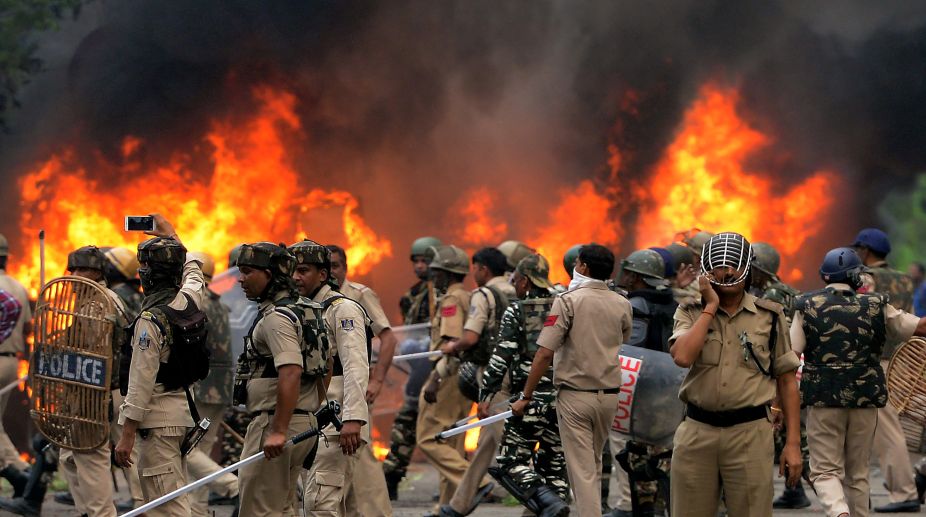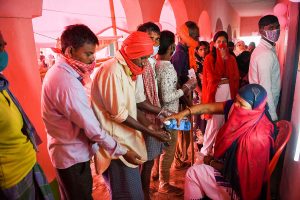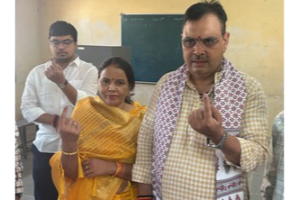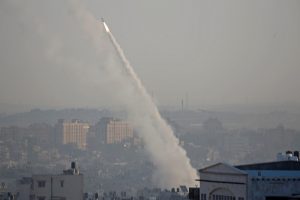Friday 25 August was a black day when the writ of the Haryana government collapsed in the state. It was the day Ram Rahim, a selfstyled godman, was to face judgment in a rape case at Panchkula CBI court.
For a week, lakhs of his supporters had been entering the city, jamming sidewalks and parks, creating confusion amongst residents and conveying the clear message that they would become a law and order problem when the judgment was announced.
The day dawned with news channels showing state police in large numbers, Rapid Action Force (RAF) jawans with helmets, DIGs of SSB and CRPF interacting with senior police officials, in short, a state confident of handling law and order. It had scores of central police force companies along with thousands of state police forces, all primed for action.
Numerous spokespersons stated that they had the requisite forces. As the day progressed, reports came in of a 200-vehicle convoy accompanying the accused on his move to court. This is possibly the first time in recent history that an accused moved to court, to be judged for a crime, like a prince, escorted by special security personnel of the state. Each halt along the route incited supporters who were willing to protest in case he was sentenced.
The state was almost at the mercy of a so-called godman, a rape accused. It appeared the government was protecting its vote bank and the man who ensured its victory, leaving the region at the mercy of his supporters.
While the state government refused to act, the courts came into the picture, questioning why it had not imposed Section 144. Vague answers justifying the decision cut no ice. Strictures by the court compelled the government to act.
This state had experienced similar situations earlier, but had refused to learn, basically because political compulsions dominate law and order. Votes are more important than a few lives. The government was playing to the galleries, keeping the so-called godman and his supporters in good humour, while hoping that the situation would remain in control. Panchkula was on lockdown, almost a police state, with thousands of security force personnel to ensure law and order, with residents too scared to even venture out.
With the court pronouncing the godman guilty, mayhem commenced. State police forces were incapable of even escorting the accused to the helicopter, which was to move him to prison. It was a small army column which was pressed into service. The move was incident free however, for even as the region exploded in violence, the accused accompanied by his so-called daughter travelled in comfort in a state helicopter.
There have been claims that there was an escape plan to take the accused to a safe location, with representatives of the state police involved, thwarted solely because the army was involved. Within a short time, the mass of security forces lost control of the situation in Panchkula and Sirsa. Almost 70 companies of CRPF, SSB, RAF and thousands of state police proved incapable, with local police even abandoning their posts and running away.
This was witnessed in earlier incidents over the past few years, yet police officers refused to learn, refused to retrain and reorganize their forces. News reports mention that the state administration in panic, requested army columns, which had been requisitioned, to move in. The army had less than a dozen columns in the region. In a short time, it controlled the violence, secured the colonies and restored order. The reason is that the army had reconnoitred the area; war-gamed the situation and planned the movement of columns.
It was prepared, while others were not. Residents claim that it was the army which saved the day, otherwise there would have been excessive damage and losses. It is surprising that despite such open display of panic, the state police authorities claimed in subsequent press conferences that they had led from the front and were in control of the situation.
Led whom was the question, as the state police was nowhere to be seen. Even in Sirsa, where the main dera was located, the mass of police and other security agencies were incapable of handling the situation. It was again the army which was stepped in. The taxpayer pays for maintaining massive state and central police forces, but if they are incapable of even holding the fort for a few hours, ensuring the safety and security of residents, is maintaining and equipping them essential? The Haryana Chief and Home secretaries, responsible for security of the state and its people, have remained underground till date.
Neither has made a statement nor offered to resign, despite failure commencing at their table. It is the same army which the government has lowered in status and reduced in privileges that brought peace and succour, while others vanished in panic.
The Justice Mathur pay commission had graded the IPS and IAS as the crème-de la-crème of the nation and the armed forces notches below, solely based on the commonality of an entrance exam.
The combination of the creme-de la-creme (IAS and IPS) has failed the nation every time, while the army has ensured safety and security. It has respect and gratitude of the nation but faces apathy of the government. The army, as always, quietly did its task, restored peace and moved back to the barracks, while the IPS suddenly seemed to find its voice, conducted press conferences, claimed success and normalcy.
They attempted to project a few specific incidents of courage, but if their own personnel left the ground, was it courage or poor leadership?
Admission of failures, lack of decision making, poor leadership and unpreparedness were missing from the press conferences, so also the admission that the army saved the day, while their own forces ran for safety.
No army officer gave a statement; after all the army has been ensuring national security since independence, which the nation knows and the government takes for granted.
(The writer is a retired Major-General of the Indian Army.)











